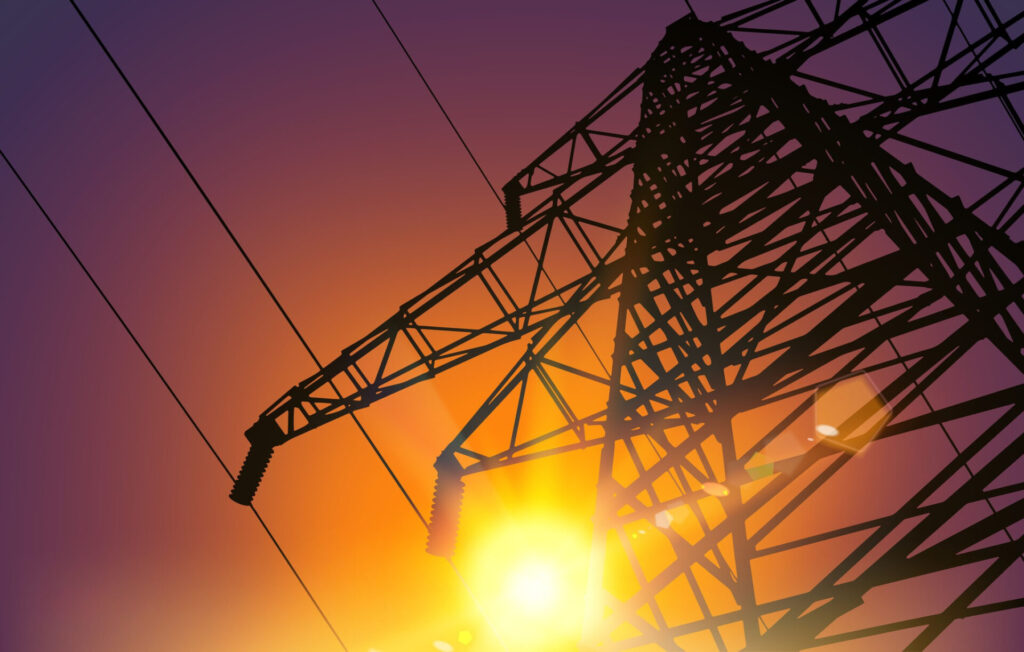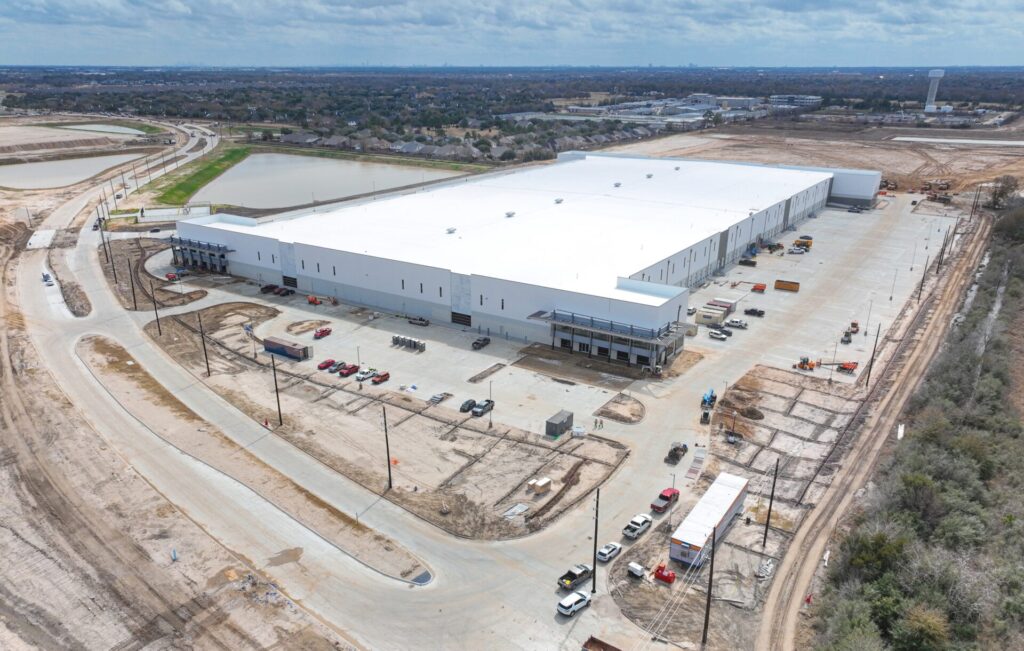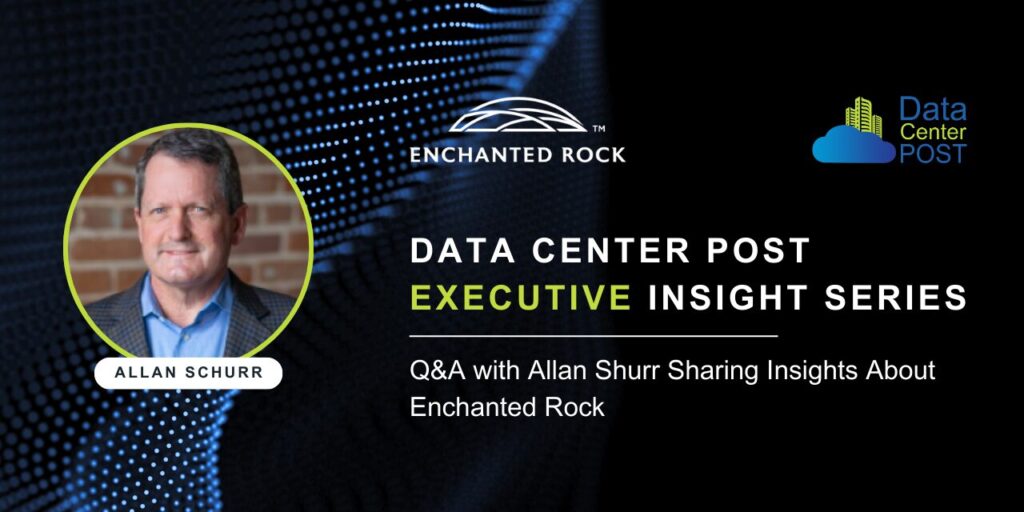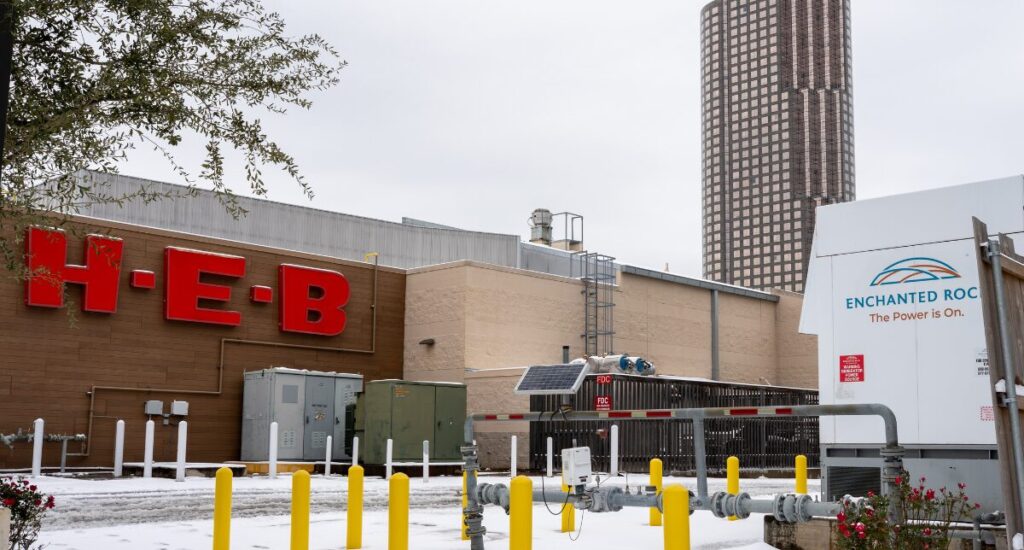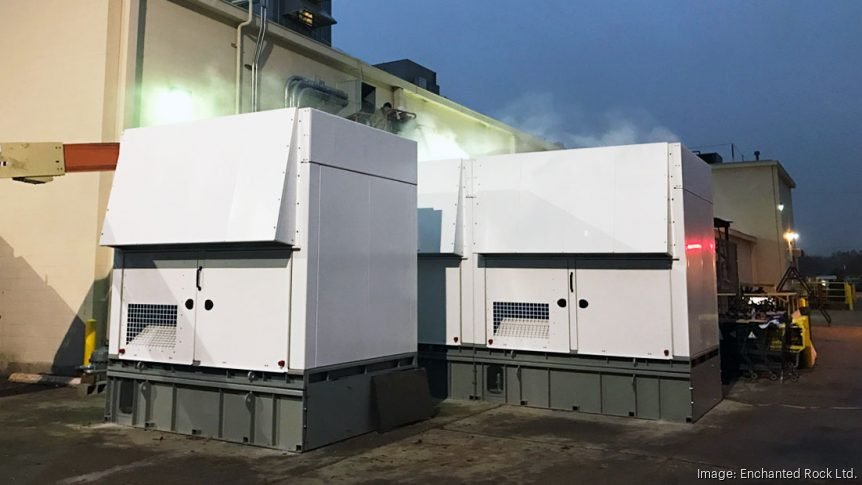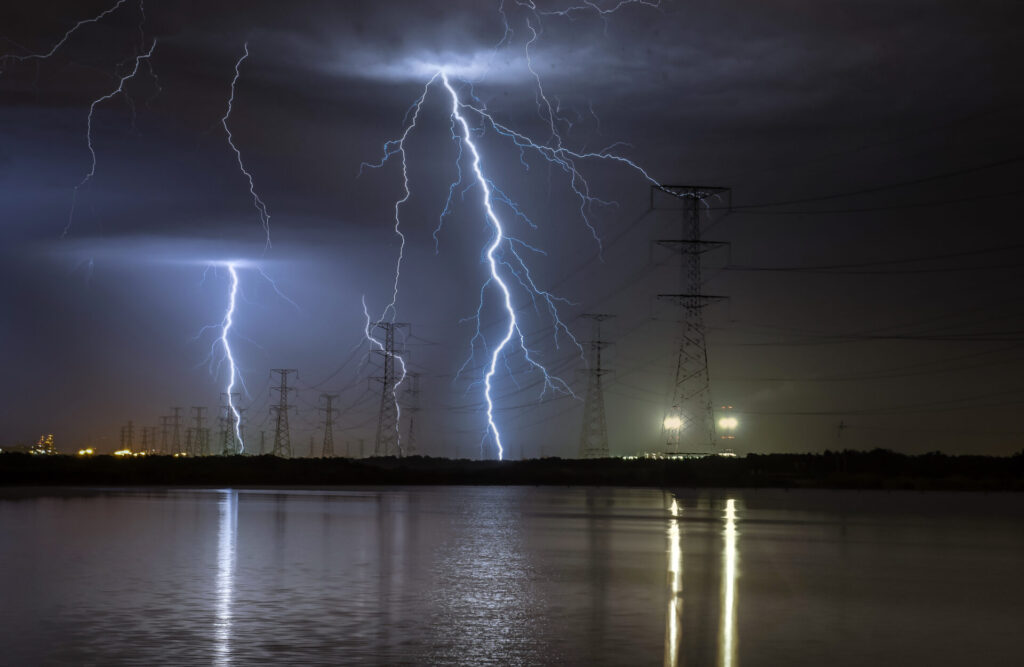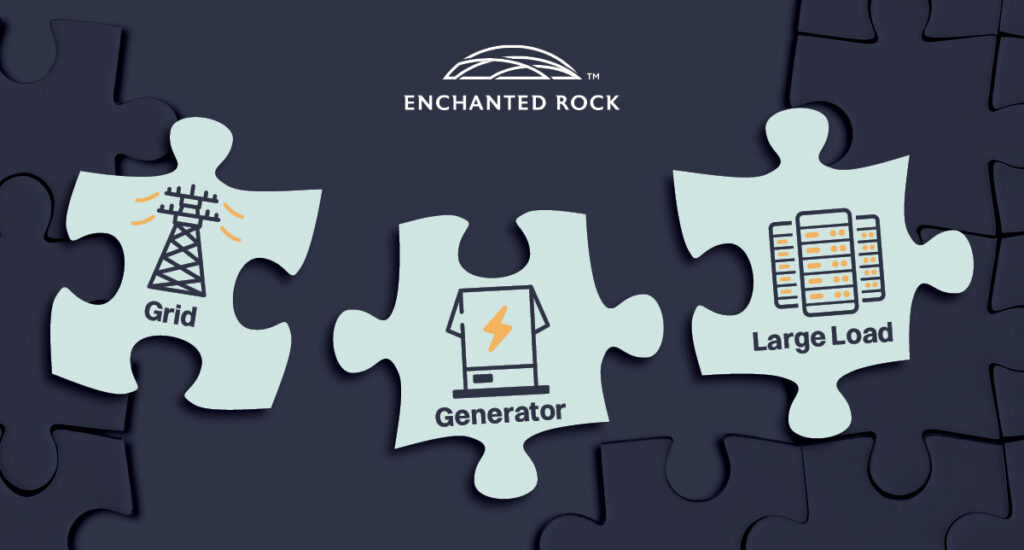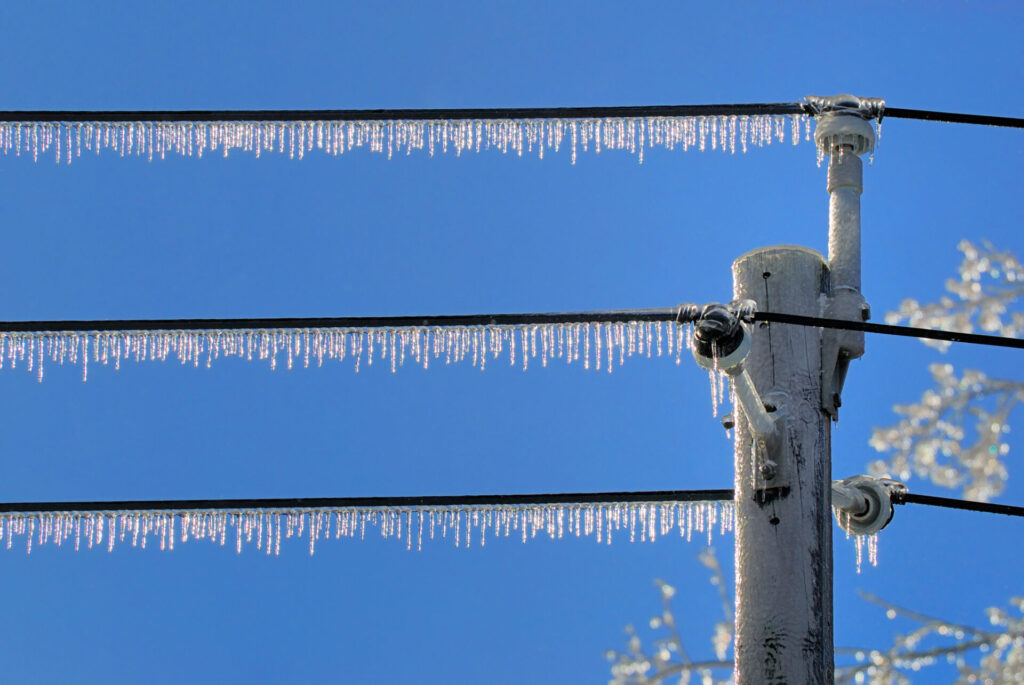Newsroom
From press releases to media coverage, stay up to date on Enchanted Rock
- Insights
- Source info here
For hyperscale data center developers, the challenge is no longer theoretical. Utilities in many regions cannot deliver 24/7 firm power, with waits as long as three to six years, forcing developers to either delay projects or rely on costly, standalone power solutions that lock in long-term self-generation and cause friction in communities. Now regulators, utilities, and large load facilities recognize that the solution is flexible, dispatchable generation co-located with large loads.
- Press Release
Prologis, a global leader in logistics real estate, has completed a full-building lease with Enchanted Rock, a recognized leader in onsite power generation and microgrid solutions, at its Legacy Point development in Cypress, Texas. The 407,302-square-foot, Class A facility marks the first delivery within the 350-acre master-planned park, which is expected to support more than 5 million square feet of industrial development. This is anticipated to expand Enchanted Rock’s production capacity to meet growing demand across the country from critical infrastructure customers, including utilities, retailers, and data centers.
- Press Release
Enchanted Rock announced that Niki Herr has joined the company as Chief Marketing Officer. Herr will lead Enchanted Rock’s marketing, brand, and communications functions, driving a unified strategy that supports the company’s continued growth across data centers, critical infrastructure, and commercial and industrial sectors.
- In the News
In today’s market, long interconnection queues, transmission constraints, and delayed utility upgrades can make it difficult for new facilities to secure dependable power. Enchanted Rock’s solutions are designed to help customers overcome these challenges and maintain operations even when grid conditions are strained.
- Insights
- Source info here
Nearly five years ago, a rare winter storm barreled toward Texas and several surrounding states, bringing with it the prospect of widespread power outages and major impacts to the grid infrastructure across the region. It exposed deep vulnerabilities across the state’s power system, causing widespread disruptions for businesses, hospitals, and critical services. But it was also a wake-up call for the entire energy industry, forcing a hard reckoning with how infrastructure performs under truly extreme conditions.
- In the News
Winter Storm Fern, which caused icy precipitation to fall across much of the country and threatened widespread power outages in January 2026, invited comparisons to 2021’s Winter Storm Uri. In an interview with the Houston Business Journal conducted less than 24 hours before Fern arrived, Enchanted Rock Chief Commercial Officer Allan Schurr outlined steps technicians were taking to ensure readiness, from expediting maintenance needs to advancing some construction work, and reinforced natural gas supply readiness to ensure the fleet was prepared.
- In the News
Risk management and resilience are becoming more interconnected, requiring facilities teams to coordinate across infrastructure, technology, and operational planning rather than addressing threats in isolation. Growing electricity demand, driven in part by the expansion of data centers and other energy-intensive facilities, is placing additional strain on the power grid and raising concerns about outages and reliability. As a result, more organizations are evaluating how they can maintain operations during grid disruptions and periods of uncertainty.
- Insights
- Source info here
For years, the data center conversation has been defined by a single anxiety: the grid cannot keep pace with accelerating demand. But FERC’s unanimous decision in December 2025 changed the math for one of its RTOs, which may be the ripple that generates a larger wave of action.
- In the News
Natural gas prices surged as forecasts of a major Arctic blast raised concerns about energy supply disruptions across much of the United States. Energy producers, utilities, and federal officials prepared for potential strain on fuel supplies and power systems as heating demand rises. Texas has emerged as a central concern in energy markets, and grid operators there are closely monitoring conditions as electricity demand is expected to peak early in the week.

